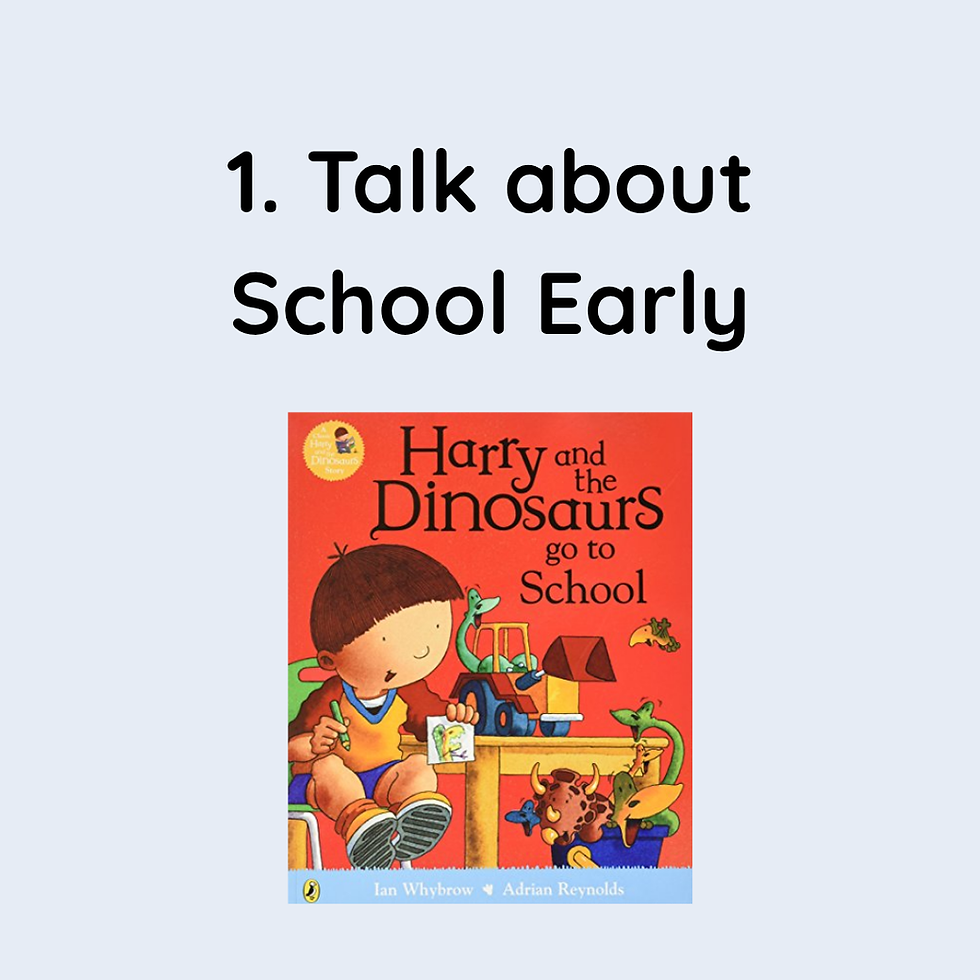- Kara Cook (Writer)

- Jul 20, 2025
- 3 min read
Simple ways to support your child’s confidence before Reception begins

Getting Ready for Reception: Help Your Child Feel Confident and Prepared
Practical tips from a phonics tutor and former Reception teacher to guide your child’s first big step into school life.
Getting ready for Reception is a big milestone, and it's completely normal to feel a bit nervous, yes, both of you! Whether your child is bouncing with excitement or feeling a little unsure, there are simple, confidence-boosting steps you can take this summer to help them feel calm and prepared.
As a phonics tutor and former Reception teacher, I’ve supported hundreds of children through this important transition, and guided just as many parents through it too. I know how overwhelming it can be, especially with so much conflicting advice out there.
That’s why I created this practical, gentle guide to getting ready for Reception.
It’s full of small, actionable wins to help your child feel capable, confident, and excited to start school.
Let’s make this next step a positive one for both of you.

1. Start talking about school in a relaxed way
It helps to gently chat about school now and again, so the idea becomes familiar. Talk about what their classroom might look like, what teachers do, and how many fun things they’ll get to try.
📚 Reading books together is a great way to open up the conversation. A few lovely ones to start with:
You don’t need to overdo it, just little chats here and there will make a big difference.

🏫 2. Visit the school (if you can!)
If your child’s school offers a transition day, stay-and-play, or even a short visit to meet the teacher, grab it! Seeing the classroom, the toilets, and the coat pegs makes school feel real, not scary.
🚶♀️ Try practising the school run a few times too, walk, scoot or drive past the school to build familiarity.
Even a peek through the school gates can help.
Got a friend or cousin starting at the same time? Let the children play together this summer; it’s lovely to see a friendly face on day one.

⏰ 3. Ease into a routine
Reception brings structure, and that’s a big change for some children.
⏳ A few weeks before September, start shifting bedtime and wake-up times so mornings feel smoother.
Some things to try...
⌚Getting dressed around the same time each day
🥣Having breakfast together without rushing
🕛Packing a lunchbox for a pretend ‘school morning'

🎒 4. Encourage little moments of independence
These don’t need to be perfect; the goal is progress, not perfection.
Things to practise:
✅Putting on their coat and shoes
✅Using the toilet independently
✅Washing hands and tidying toys
✅Opening their lunchbox or snack pots
Every time your child does something all by themselves, they build confidence for what’s ahead.

👫 5. Support their social skills
Reception is full of teamwork, turn-taking, and learning alongside others, all through play!
🗣️ A few simple ways to build those skills:
Set up playdates or park meetups
Practise turn-taking games at home
Chat about how to ask for help or say how they feel
You can even role-play “What if…” moments like:
“What if I can’t find my coat?”
“What if I feel shy?”
Give them the words before they need them.
💬 A final note from Kara
You’re already doing an amazing job, just by reading this, you’re showing how much you care.
Starting Reception doesn’t have to feel overwhelming. With a bit of gentle prep, lots of love, and a sprinkle of play, your child can head into school feeling ready, excited, and confident.
Every child is different, so go at your own pace, follow their lead, and focus on the small wins that add up over time.
💡 Looking for support with early reading or phonics?
Hi, I’m Kara, a qualified teacher and phonics specialist with 24 years of experience. I run friendly, online phonics mini-groups for Reception and KS1 children who need a gentle boost with early reading and confidence.
💛 Every child deserves to feel ready for school. If you’d like gentle, expert help with phonics and early reading, I’d love to support your child’s Reception journey.
🎁 You can also grab my free reading resources and parent-friendly tips from my website to make learning fun at home.
📌 Save this guide or share it with a friend whose little one is starting school soon!
👋 Let’s stay in touch:

Follow Me, Like & Share!
LET’S GET SOCIAL:
💻 My website & blog: www.karaprimarytutor.com
Facebook: www.facebook.com/just2imaginetutors
📸 Instagram: www.instagram.com/just2imaginetutors 🎥🎥You tube: @just2imaginetutors










